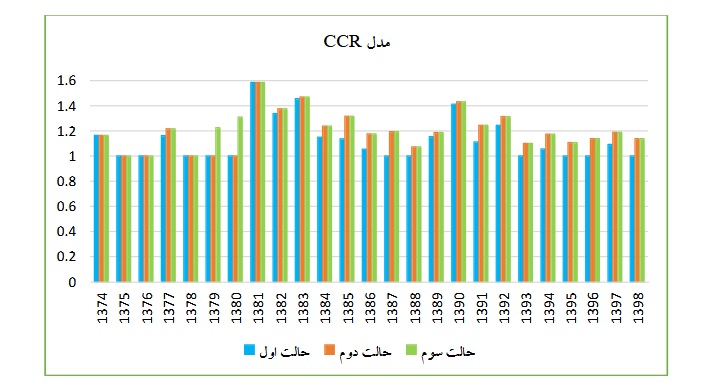Evaluation and Ranking of Iran's 25-Year Budgeting System Using the Data Envelopment Analysis Technique
Keywords:
Budgeting, Data Envelopment Analysis, Efficiency, Super Efficiency, RankingAbstract
Budget evaluation and ranking play a crucial role in understanding a country's financial priorities and shaping its economic direction. In recent years, economic challenges such as sanctions, fluctuations in oil revenues, and inflation have influenced the distribution of financial resources, leading to shifts and restrictions in spending priorities. During periods of rising oil prices, there is greater flexibility for investing in public services, while in times of recession, austerity measures tend to reduce these expenditures, affecting overall development in these areas. Given the importance of budgeting, the main objective of this article is to evaluate and rank the country's budgeting system from 1374 to 1398 using the Data Envelopment Analysis (DEA) technique. The purpose of budget allocation ranking is to provide a clear understanding of how resources have been distributed over time and to assess the impact of these decisions on national development. This analysis helps identify strengths and weaknesses in fiscal policy and offers insights for future budgeting strategies that can better balance economic growth, social welfare, and infrastructural development.







